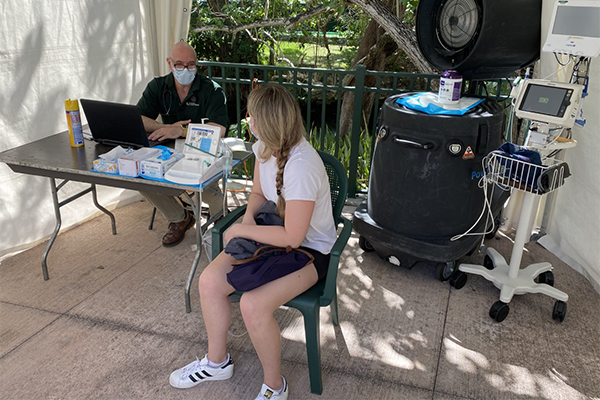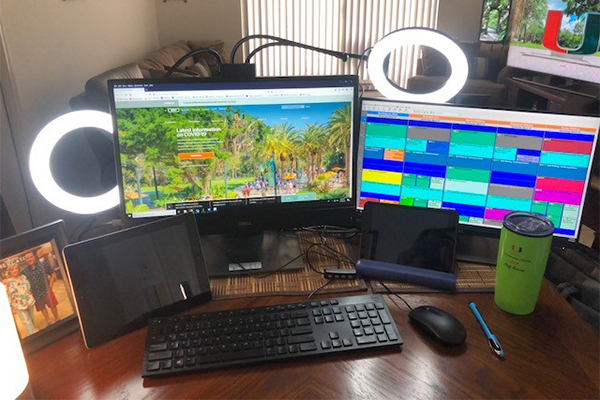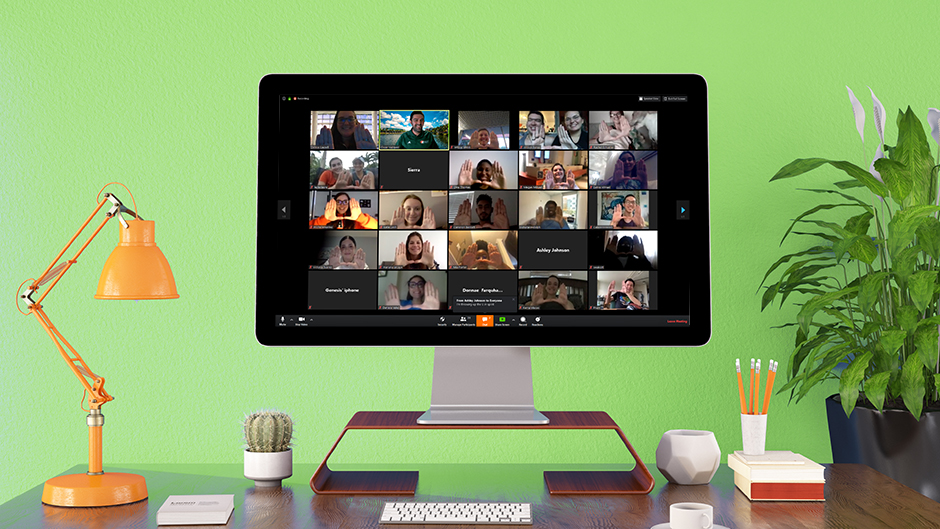On any given day on the University’s Coral Gables campus, employees from the Division of Student Affairs can be found living out the ’Canes Care for ’Canes philosophy by supporting, engaging, and developing students outside of the classroom. From managing orientation to planning commencement, and everything in between, here is how the staff continues to serve ’Canes.

Student Health Service is prepared.
While University leaders considered crucial decisions about students returning to campus after spring break, the team at Student Health Service—led by director, Howard Anapol—jumped into action to plan for all scenarios. To begin preparations, triage tents were set up outside of the Lennar Foundation Medical Center to appropriately provide services to students experiencing possible COVID-19 symptoms. While student medical care remained a priority, the Student Health Service team began working closely with the University community, UHealth experts, and county officials to provide guidance and insight on the possible impacts of COVID-19 on the campus. Today, with few students on campus, the Student Health Services team has shifted to telemedicine, providing appointments, as necessary, Monday through Friday from 10 a.m. to 4 p.m. to all enrolled students.

Student life stays engaged.
Despite the changes on campus, Renée Dickens-Callan, executive director of student life, has kept operations running as close to normal as possible during the last month. Working closely with the student life offices—including orientation and commuter student involvement, student activities and organizations, the LGBTQ Center, the Butler Center for Service and Leadership, and Multicultural Student Affairs—Callan shared that, in addition to prioritizing everyone’s health and safety, her teams continue meeting virtually to develop innovative strategies and protocols on the best ways to educate, support, and celebrate students remotely.

Counseling Center supports students remotely.
The University’s Counseling Center, led by Rene Monteagudo, director, serves all enrolled students across all the three campuses—with the goal of enhancing emotional development, ultimately supporting academic success. Though the multidisciplinary staff of mental health counselors, clinical social workers, psychiatrists, and trainees have also shifted to a virtual platform, they continue to ensure that every student has the necessary support and resources to manage any challenges related to their mental health and well-being. In addition to online appointment options, students can also call a 24/7 crisis line at 305-284-5511 (Press 1), regardless of where they are located in the country.

Collaboration is key for Housing and Residential Life.
Although just about everything related to the students’ residential experience has shifted, the mission and responsibilities of the Housing and Residential Life (HRL) team remain the same. Ivan Ceballos, executive director of residential life, shared that, with more than 300 students and staff and faculty members still living on campus, his team continues to collaborate with the Office of Emergency Management, Student Health Service, Dining Services, and other campus colleagues to establish new policies and practices to ensure the wellness and safety of our on-campus community. For residents who are currently not living on campus, lines of communication to the HRL team remain open to provide updates and support. Strategic planning and implementation for projects including the Lakeside Village continue, even in a remote environment.
Stay connected:
Students can stay in touch with the Division of Student Affairs, fellow ’Canes, and campus partners at miami.edu/stayconnected. In addition to campus offices maintaining regular operations remotely, the site is a collection of special virtual offerings for students.

